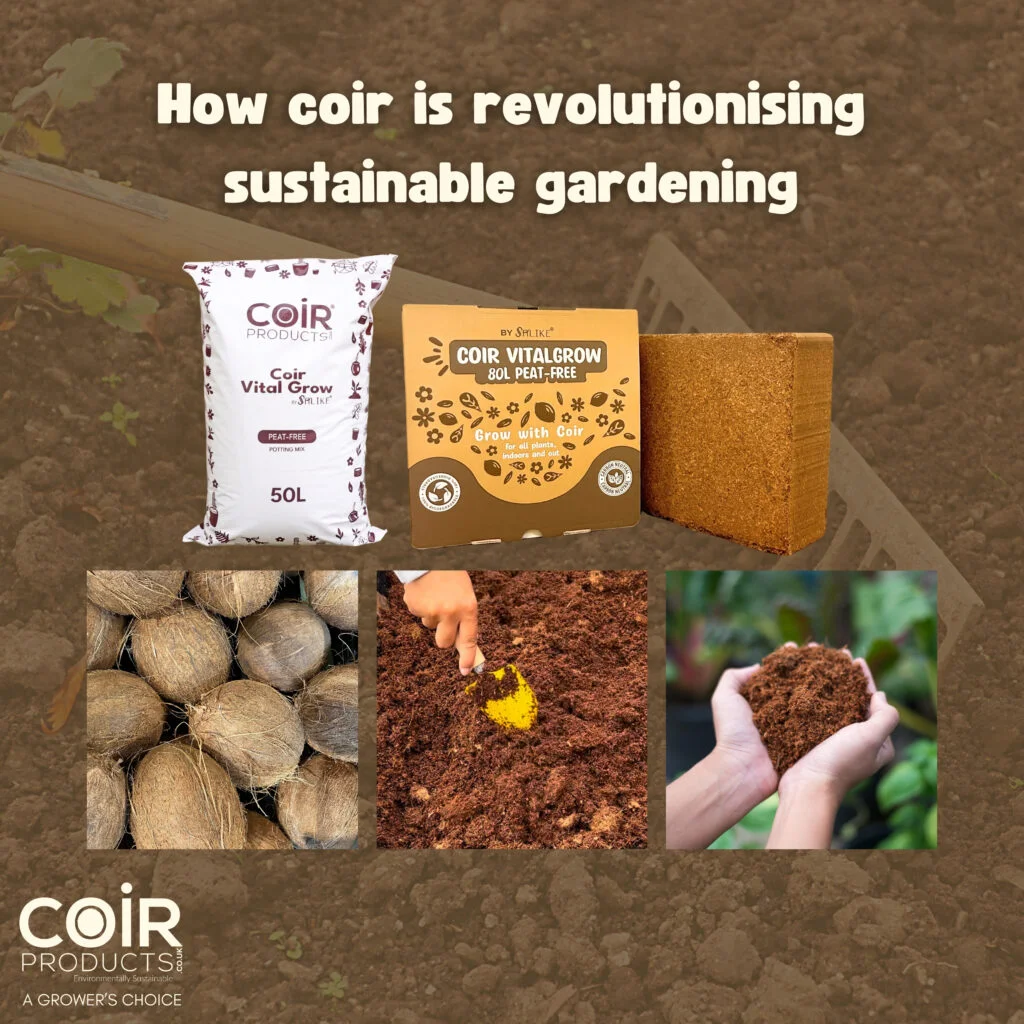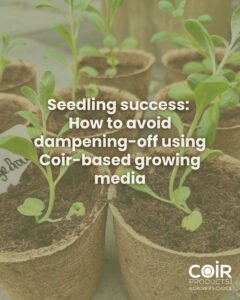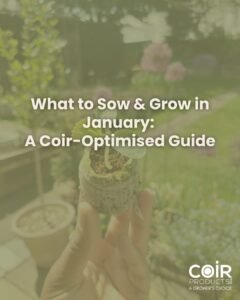The shift toward peat-free gardening is more than just a trend—it’s a necessity. As the UK moves toward a peat-free future, gardeners are searching for sustainable, high-performance alternatives that don’t compromise on quality. That’s where coir comes in.
At CoirProducts® by Salike®, we’re not just offering coir-based solutions—we’re pioneering a movement to make sustainable gardening more accessible. But what makes coir the ultimate choice for eco-conscious gardeners?
Let’s dive into the game-changing benefits of coir and how it’s shaping the future of growing.
Why peat-free gardening matters
For years, peat-based composts were popularly used across the UK. But with growing awareness about their environmental damage, steps are being taken to ban the use of peat compost in household gardening.
With peatlands storing vast amounts of carbon and home to rare species, peat extraction destroys vital ecosystems and can lead to biodiversity loss. The extraction of peat also releases CO₂ into the atmosphere, contributing to climate change.
A byproduct of the coconut industry, coir coir offers a renewable, sustainable alternative without harming the environment.
What is coir and why is it a game-changer?
Coir is made from coconut husks, which were once discarded as waste. Today, this versatile, eco-friendly material is revolutionising gardening with its peat-like properties—but without the environmental cost.
Here are a few reasons why coir is growing in popularity.
- 100% natural and sustainable – derived from coconut husks, it is a renewable resource.
- Incredibly water-retentive – coir absorbs moisture while maintaining excellent aeration, which is beneficial for plants
- Balanced pH and free from chemicals – coir is naturally neutral
- Long-lasting – coir doesn’t break down as quickly as peat, offering better structure & drainage.
Did you know? Coir has been used for centuries in horticulture, hydroponics, and commercial farming, proving its effectiveness as a reliable growing medium.
Top 5 reasons to choose our Coir Vital Grow potting mix over peat
- It’s a renewable resource
Coconut trees produce new husks every 45–90 days, making coir an infinitely renewable resource. - Superior water retention and drainage
Coir absorbs water, preventing overwatering while ensuring roots get the oxygen they need. This helps plants grow stronger and healthier root systems. - Balanced pH for healthier plants
Unlike peat, which is acidic and requires pH adjustments, coir is naturally pH neutral (5.5–6.8)—making it ideal for a variety of plants. - Reduces soil compaction and improves aeration
Coir maintains a light, airy texture, promoting strong root development. - Better for the environment and local communities
Choosing coir means supporting ethical farming. At CoirProducts by Salike®, we work directly with smallholder farmers and cottage industries in Sri Lanka, ensuring fair wages and sustainable practices.
How to use Coir Vital Grow in Your Garden
Coir is incredibly versatile and easy to use. Here’s how you can incorporate it into your gardening routine:
For potting mix
- Hydrate the compressed coir brick with water (it expands up to 4x its size!). Once hydrated, fluff and mix the potting mix.
- If required, add with organic compost or perlite for a complete, well-draining potting mix
- It’s ready to use, and ideal for all types of plants and gardening.
For seed starting
- Use Coir Vital Grow potting mix (coir substrate) for excellent moisture retention and aeration
- Coir promotes strong seedling development with minimal risk of damping-off
For raised beds and outdoor gardening
- Mix into heavy clay soils to improve drainage
- Helps sandy soils retain moisture during dry spells
- Promotes strong root growth in vegetables, fruits, and flowers.
For hydroponics
- Used as a soilless growing medium, Coir Vital Grow retains water while allowing nutrient-rich solutions to reach plant roots efficiently
- Ideal for hydroponic tomatoes, leafy greens, and herbs



 Share:
Share:



Leave a Reply